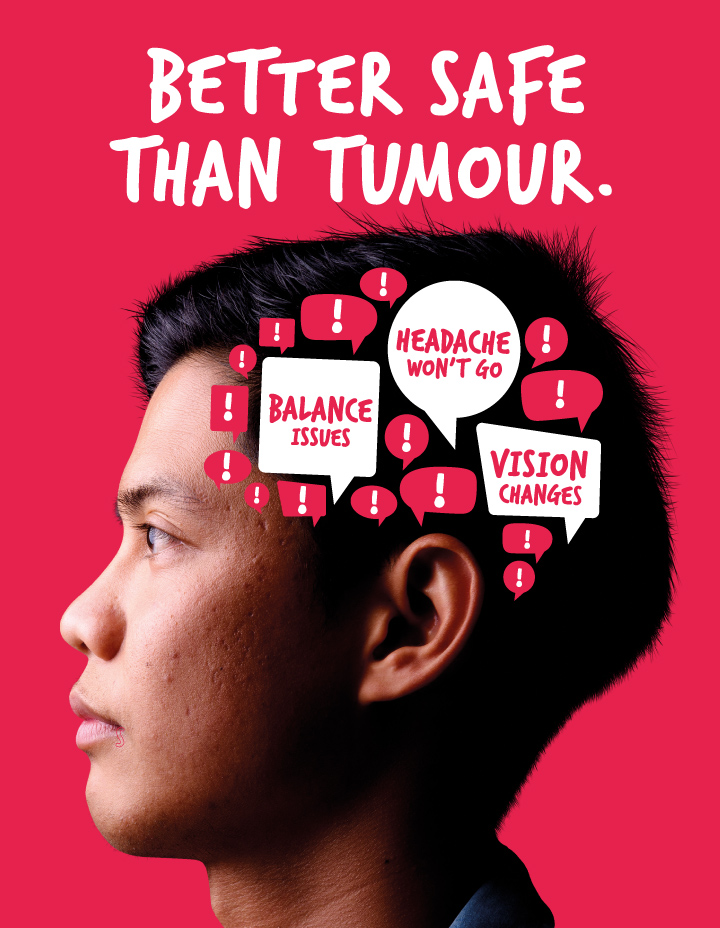Balance problems in a child
Babies and children develop skills such as sitting, walking and running as they grow up. These are known as motor skills and it’s normal for different children to learn these at different rates. But, balance problems in a child can be a symptom of a brain tumour, so it’s important to know the signs to look out for.

On this page:
- Are co-ordination or balance problems a symptom of a brain tumour?
- I think my child has a brain tumour, what should I do?
Other symptoms
Use our Better Safe Than Tumour symptom checker to check for other brain tumour symptoms.
Talking to your doctor
Learn more about how to approach your GP.
Get your free Information Pack
Our Brain Tumour Information Pack can help you better understand your diagnosis and feel confident talking to your medical team.
Are co-ordination or balance problems a symptom of a brain tumour?
Losing or experiencing a reduction in motor skills could be a sign of a serious illness, including a brain tumour.
If your child starts to experience problems with balance, co-ordination or walking, you should make an appointment with your GP as soon as possible.
Signs to look out for:
- Toddlers or young children may stop walking and start crawling again.
- Your child has started using their left hand instead of their right hand for tasks or vice versa.
- Your child has started to struggle with something they were previously better at such as reading or playing computer games.
- Your child is unsteady when walking, they may stumble or fall and need to hold on to walls and handrails.
If you are concerned about your child, make an appointment with a GP. If symptoms appear suddenly or are severe, take your child to A&E or phone 999.
I think my child has a brain tumour, what should I do?
Brain tumours are rare. But, if you’re worried and a symptom persists, or if your child has more than one symptom of a brain tumour then:
- Talk to your doctor
GP appointments are usually quite short, so make sure you find out how to best prepare for your child’s appointment, which you can do here. - Get an eye test
If your child’s symptoms are limited to changes in vision and/or headaches, get their eyes tested by an optician before seeing your GP. - Go to A&E
If the symptoms are sudden or severe, you should go to your emergency department or call 999.
More information
Download the HeadSmart symptoms card – PDF
Pocket-sized symptoms card that list the common signs and symptoms of childhood brain tumours, which you can take with you to your family GP if you are concerned about your child.
In this section

Know the Signs and Symptoms
Although brain tumours are rare, if you or a loved one are experiencing two or more of the signs and symptoms it’s important that you speak to your doctor to rule out a brain tumour.
Share your experiences and help create change
By taking part in our Improving Brain Tumour Care surveys and sharing your experiences, you can help us improve treatment and care for everyone affected by a brain tumour.